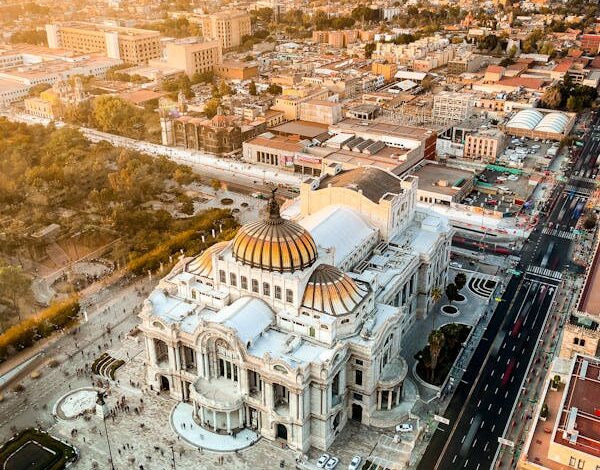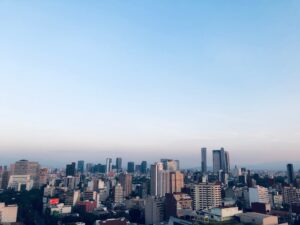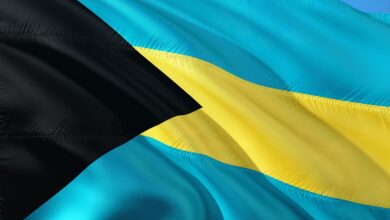
Mexico, the 14th largest country in the world and the third-largest in Latin America, is a land rich in history, culture, and natural beauty. From the bustling metropolises of Mexico City and Guadalajara to the serene beaches of Cancun and the ancient ruins of the Yucatán Peninsula, Mexico offers a vibrant and diverse experience. This article provides an in-depth look at various aspects of life in Mexico, highlighting what makes this country an intriguing and desirable place to live.
Geography and Climate in Mexico
Diverse Landscapes
Mexico’s geography is incredibly varied, encompassing mountains, deserts, forests, and coastlines. The country is divided into several regions, each with its own unique environment. The Sierra Madre mountain ranges dominate the landscape, while the central plateau is home to some of the country’s most populous cities. Coastal areas like the Yucatán Peninsula and Baja California are known for their beautiful beaches and marine life.
Climate Variations
Mexico’s climate ranges from tropical in the south to desert in the north. Coastal regions enjoy warm temperatures year-round, making them popular tourist destinations. The central highlands, including Mexico City, have a more temperate climate with distinct wet and dry seasons. In contrast, northern areas can experience extreme temperatures, with hot summers and cold winters. This climate diversity allows for a wide range of agricultural products and outdoor activities.
Culture and Society
Rich Cultural Heritage in Mexico
Mexico boasts a rich cultural heritage that blends Indigenous, Spanish, and other influences. This fusion is evident in the country’s architecture, cuisine, and traditions. Cities like Mexico City are cultural hubs, home to numerous museums, galleries, and historical sites. The country is also famous for its vibrant festivals, such as Día de los Muertos (Day of the Dead) and Cinco de Mayo, which celebrate its unique history and traditions.
Music and Dance
Music and dance are integral parts of Mexican culture. Traditional genres like mariachi, banda, and norteño are popular throughout the country, often performed at celebrations and festivals. The lively rhythms and colorful costumes of folk dances such as the jarabe tapatío (Mexican hat dance) are also a significant part of Mexican heritage. Modern music genres, including pop, rock, and hip-hop, have a strong presence, reflecting the dynamic and evolving nature of Mexican culture.
Festivals and Celebrations
Mexicans are known for their love of celebrations and festivals, which play a significant role in community life. Día de los Muertos, a festival honoring deceased loved ones, is one of the most iconic, featuring elaborate altars, marigold flowers, and sugar skulls. Other major celebrations include Las Posadas, a Christmas tradition reenacting Mary and Joseph’s search for shelter, and the Guelaguetza, a cultural festival in Oaxaca showcasing Indigenous traditions.
Education and Healthcare in Mexico
Educational System
Mexico’s educational system comprises both public and private institutions. Education is compulsory for children between the ages of six and 18. Public schools provide free education, although the quality can vary, particularly in rural areas. Private schools offer an alternative, often with a higher standard of education. The country is home to several prestigious universities, including the National Autonomous University of Mexico (UNAM) and the Monterrey Institute of Technology and Higher Education (ITESM).
Healthcare System
Mexico has a mixed healthcare system that includes public, private, and social security sectors. The public healthcare system, managed by the Mexican Social Security Institute (IMSS) and the Ministry of Health, provides services to employed individuals and those in need. While public healthcare is affordable and accessible, many opt for private healthcare for its higher quality and shorter waiting times. Mexico is also known for its growing medical tourism industry, attracting international patients with affordable and high-quality medical treatments.

Economy and Employment in Mexico
Diverse Economy
Mexico has one of the largest economies in Latin America, characterized by a mix of modern industry and traditional agriculture. Key industries include automotive manufacturing, electronics, oil production, and tourism. The country is a significant exporter of agricultural products, such as avocados, tomatoes, and tequila. Free trade agreements, particularly the United States-Mexico-Canada Agreement (USMCA), play a crucial role in Mexico’s economic landscape.
Employment Opportunities
The job market in Mexico is diverse, offering opportunities in various sectors. Major cities like Mexico City, Monterrey, and Guadalajara are hubs for business, finance, and technology. The growing tourism industry provides numerous jobs in hospitality and services, particularly in popular destinations like Cancun and Playa del Carmen. While the informal sector is significant, efforts are being made to improve job quality and security.
Quality of Life in Mexico
Cost of Living
The cost of living in Mexico is relatively low compared to many Western countries, making it an attractive destination for expatriates and retirees. Housing, transportation, and food are generally affordable, although costs can vary significantly between urban and rural areas. Major cities offer a higher standard of living but at a higher cost, while smaller towns and rural regions provide a more economical lifestyle.
Safety and Stability
Safety in Mexico can vary by region. While some areas, particularly in the northern states, have experienced issues related to drug-related violence, many parts of the country are quite safe. Popular tourist destinations and major cities generally have a strong police presence and security measures in place. The government continues to address safety concerns, aiming to improve public security and reduce crime rates.
Natural Beauty and Outdoor Activities in Mexico
Beaches and Coastal Activities
Mexico’s extensive coastline offers some of the world’s most beautiful beaches, attracting millions of tourists annually. Popular beach destinations include Cancun, Riviera Maya, Puerto Vallarta, and Los Cabos. These areas are perfect for activities like swimming, snorkeling, scuba diving, and sport fishing. The Pacific coast and the Caribbean Sea provide diverse marine ecosystems and vibrant underwater life.
Mountains and Outdoor Adventure in Mexico
Inland, Mexico’s varied landscapes provide ample opportunities for outdoor adventures. The Sierra Madre mountain ranges are ideal for hiking, climbing, and exploring. The Copper Canyon in Chihuahua is a stunning natural wonder, larger and deeper than the Grand Canyon. Additionally, Mexico’s numerous national parks and protected areas offer opportunities for eco-tourism, wildlife watching, and experiencing the country’s diverse flora and fauna.

Archaeological Sites
Mexico is home to numerous archaeological sites that reflect its rich pre-Columbian history. The ancient cities of Teotihuacan, Chichen Itza, and Palenque are UNESCO World Heritage Sites, attracting scholars and tourists alike. These sites offer a glimpse into the advanced civilizations of the Maya, Aztec, and other Indigenous peoples, showcasing their impressive architecture, art, and cultural achievements.
Community and Social Life in Mexico
Warm and Welcoming People
Mexicans are known for their hospitality and warmth. Family and community are central to social life, with gatherings often centered around meals and celebrations. Traditional foods like tacos, tamales, and mole are staples of Mexican cuisine, enjoyed in both casual settings and festive occasions. The concept of “convivencia,” or living together harmoniously, is a fundamental aspect of Mexican social interactions.
Vibrant Nightlife
Mexico boasts a vibrant nightlife, particularly in urban areas and tourist destinations. Cities like Mexico City, Guadalajara, and Playa del Carmen offer a wide range of entertainment options, from trendy bars and nightclubs to traditional cantinas and live music venues. Whether you enjoy dancing to the rhythms of salsa and cumbia or relaxing in a chic lounge, Mexico’s nightlife caters to diverse tastes and preferences.
Transportation and Infrastructure in Mexico
Public Transportation
Mexico has a well-developed public transportation system, particularly in its major cities. Mexico City, for example, has an extensive metro system that is affordable and efficient. Buses, minibusses, and taxis are widely available throughout the country, providing convenient transportation options. In smaller towns and rural areas, colectivos (shared vans) are a common mode of transport.
Road and Air Travel
The road network in Mexico is extensive, with highways connecting major cities and regions. Driving is a popular way to explore the country, although it’s essential to be aware of varying road conditions and traffic rules. For long-distance travel, domestic flights are a convenient option, with numerous airlines offering services between cities. Mexico’s major international airports, such as Mexico City International Airport and Cancún International Airport, connect the country to global destinations.
Sustainability and Environmental Initiatives in Mexico
Environmental Conservation
Mexico is committed to environmental conservation and sustainable development. The country has established numerous national parks and protected areas to preserve its diverse ecosystems and wildlife. Environmental organizations and government agencies work together to address issues such as deforestation, pollution, and climate change. Community-led conservation projects are also gaining momentum, promoting sustainable practices at the local level.
Renewable Energy
Mexico is investing in renewable energy to reduce its reliance on fossil fuels and mitigate environmental impact. The country has significant potential for solar, wind, and geothermal energy. Government initiatives aim to increase the share of renewables in the national energy mix, contributing to a more sustainable future. Projects like the Villanueva Solar Park, one of the largest in Latin America, showcase Mexico’s commitment to green energy.
Life in Mexico is characterized by its rich cultural heritage, diverse natural landscapes, and high quality of life. From the bustling cities to the tranquil beaches and ancient ruins, Mexico offers a unique blend of experiences for residents and visitors alike. The country’s emphasis on family, community, and tradition, combined with its vibrant social scene and welcoming people, make it an attractive destination for those seeking a fulfilling and dynamic lifestyle.
Living in Mexico means embracing a culture that values harmony, celebrates diversity, and cherishes its natural environment. With its robust economy, numerous recreational opportunities, and commitment to sustainability, Mexico stands out as a remarkable place to live and explore. Whether you are considering relocating or simply visiting, Mexico promises a rich and rewarding experience.



